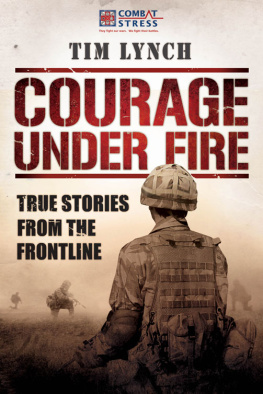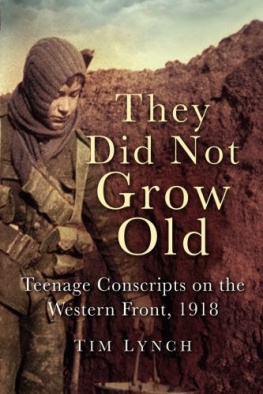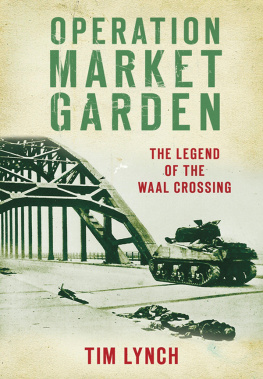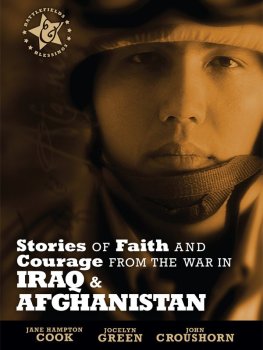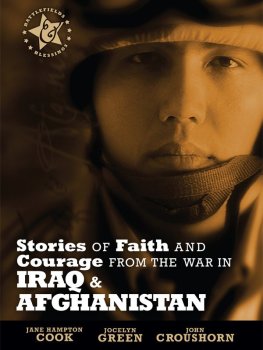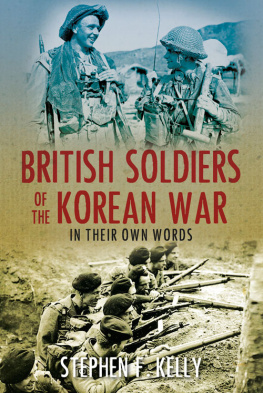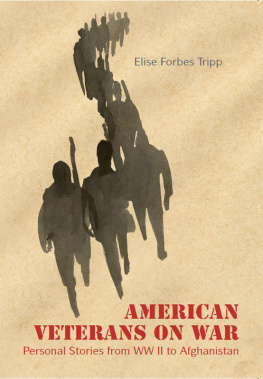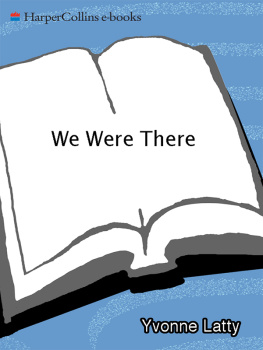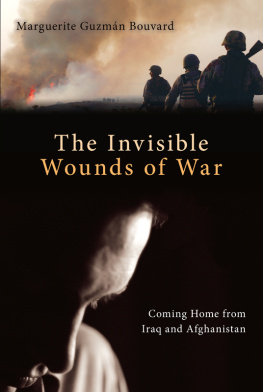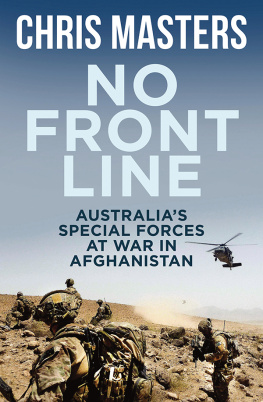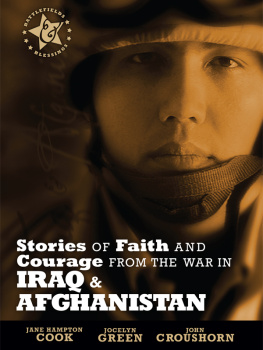

CONTENTS
BY GENERAL SIR RICHARD DANNATT
CHAPTER 1:
CHAPTER 2:
CHAPTER 3:
CHAPTER 4:
CHAPTER 5:
CHAPTER 6:
CHAPTER 7:
CHAPTER 8:
CHAPTER 9:
CHAPTER 10:
CHAPTER 11:
CHAPTER 12:
CHAPTER 13:
Imagine a young man today, going on patrol in Afghanistan, knowing that he will face Improvised Explosive Devices and that the chance of seeing one detonate is statistically very high. He is effectively walking through an unmarked minefield. He will have known, or at least heard of, comrades who will have lost limbs doing so. He will be doing that day in, day out. It is not uncommon to see a soldier vomit through fear when faced with that knowledge, but who is nonetheless able to take his life in his hands and do it anyway.
For me, the notion of courage under fire can be split into two very distinct, but equally vital, parts. Physical courage is perhaps the most often considered form of courage, but moral courage is every bit as important. Under fire, you will behave instinctively. You need physical courage to put yourself in harms way, but you also need the moral courage to do the right thing, instinctively.
Courage is one of the six core values (outlined ) the army introduced around ten years ago. It has placed a greater emphasis on the need for moral courage in recent years. Physical courage has always been there, throughout history, and is very likely to remain, as it is not possible to fight wars without it. New service personnel are educated that there is a right thing and a wrong thing to do in any difficult situation and they are trained to choose the right thing, even under enormous pressure. Whether witnessing harassment of a female comrade or of an Iraqi civilian, for example, it takes great moral courage to speak out and stop it. It would be easy for them to do nothing or look the other way, but we should be proud that they do not, whether through this training or their own moral values.
Only a very small percentage of the population has served, or had a family member serve, in the military. Therefore, only a minority of people know first-hand the pressures that servicemen are under. This is why its more important than ever that the work of charities like Combat Stress is supported by the public. As an entity run specifically for veterans, they understand the behaviour, the language and the needs of servicemen in a way that a public service like the NHS cannot.
There is a greater understanding and acceptance of mental health issues in the Army than ever before. Soldiers are alert to members of their platoon or company who might be showing signs of distress and know how to deal with such signs. The problem can be addressed by getting someone who understands that these things are normal, talking to them, and addressing it very early on.
History shows an unequal balance between civilians and servicemen seeking help. The average time it takes for a serviceman to begin to look for treatment for mental health issues is fourteen years. Indeed, there are Falklands veterans only beginning to ask for support now. As more soldiers return from Iraq and Afghanistan help will be needed for years to come. Donations to charities like Combat Stress make a life-changing difference to these men and women who have risked their lives serving their country. They need all the help we can give them.
General Sir Richard Dannatt GCB CBE MC DL
NO HEROES
There were no heroes here
Amongst the men who tramped through
Rutted, quaking moor,
Or crawled, cat-silent,
Over skittering scree
To prove the way.
No heroes fought the blazing fires
Which sucked the very blood from
Ship and man alike.
Or braved knife cold
Without a thought
To save a life.
No heroes they, but ones who loved
Sweet life and childrens laugh,
And dreamt of home
When war allowed.
They were but men.
David Morgan DSC
800 Naval Air Squadron
Falkland Islands Task Force 1982
There are no heroes in Afghanistan.
Its not a word soldiers use about themselves. In the midst of a firefight, when the lives of your mates depend on your next move, two things heroics and hysterics will get you all killed. What matters most as the rounds come in is the ability to remember your training and do what has to be done. Medals are won in a few short minutes; wars are won by enduring day after endless day. It is in the long, grinding routine of fear, exhaustion and hunger that a soldiers worth is measured and his true character revealed. To be called a hero by the press at home means nothing. To be called a good soldier by friends who have seen you at your best and at your worst is beyond price.
Navy Medical Assistant Kate Nesbitt was on her first tour of duty in Afghanistan, working as a patrol medic attached to the 1st Battalion, The Rifles when, as she later remembered, Without warning Taliban fighters opened fire, having ambushed us. Within seconds I heard, Man down, man down, on the radio and I knew I was needed. I got the location details and sprinted towards him while under fire. All I was thinking was, Theres a casualty and I need to be there. I just thought the quicker I get to him the more chance I have to save his life. It was adrenalin. Whenever I went on patrol I hoped I wouldnt be needed but when the call came I knew I had to step up to the mark.
After crossing 70m of open ground to reach Corporal John List, she found him choking to death on his own blood. When I first got there I didnt think he was going to make it. He was struggling to breathe and I had to provide him with another airway. The round had gone through his top lip, ruptured his jaw and come out of his neck. He was so lucky it didnt hit an artery. Nesbitt worked for 45 minutes to stabilise Lists injuries before he could be evacuated to hospital, working continuously with heavy fire all around her.
Her actions that day won her the Military Cross with a citation that read, Her actions throughout a series of offensive operations were exemplary; under fire and under pressure her commitment and courage were inspirational and made the difference between life and death. She performed in the highest traditions of her service. When she received the award, Nesbitt told reporters that being described as a hero is just too much. I did my job the best I could. It was just overwhelming to hear people say well done and that he made it through. The praise was nice, but I would have been over the moon with a good [appraisal] report.
Iain McRobbie survived the sinking of HMS Ardent during the Falklands War and recalls returning to a heros welcome. I could have done without that, actually. Hero is a word that is used far too often. I was doing the job I was paid to do its not something I would like to have to do again. To me, the heroes are the guys whose names are on all these cenotaphs all over Britain. The country is full of people who have done things like that squaddies who served in Northern Ireland, old men who were at Monte Cassino. It was a sentiment echoed years later by 18-year-old Alex Kennedy, who won the Military Cross after only eight months in the army during his first tour of Afghanistan. He insisted, I dont feel like a hero that title should really go to those who go out to Afghanistan and dont make it back. No veteran, it seems, ever claims to be a hero, but every one of them knows someone else who was.
Next page
